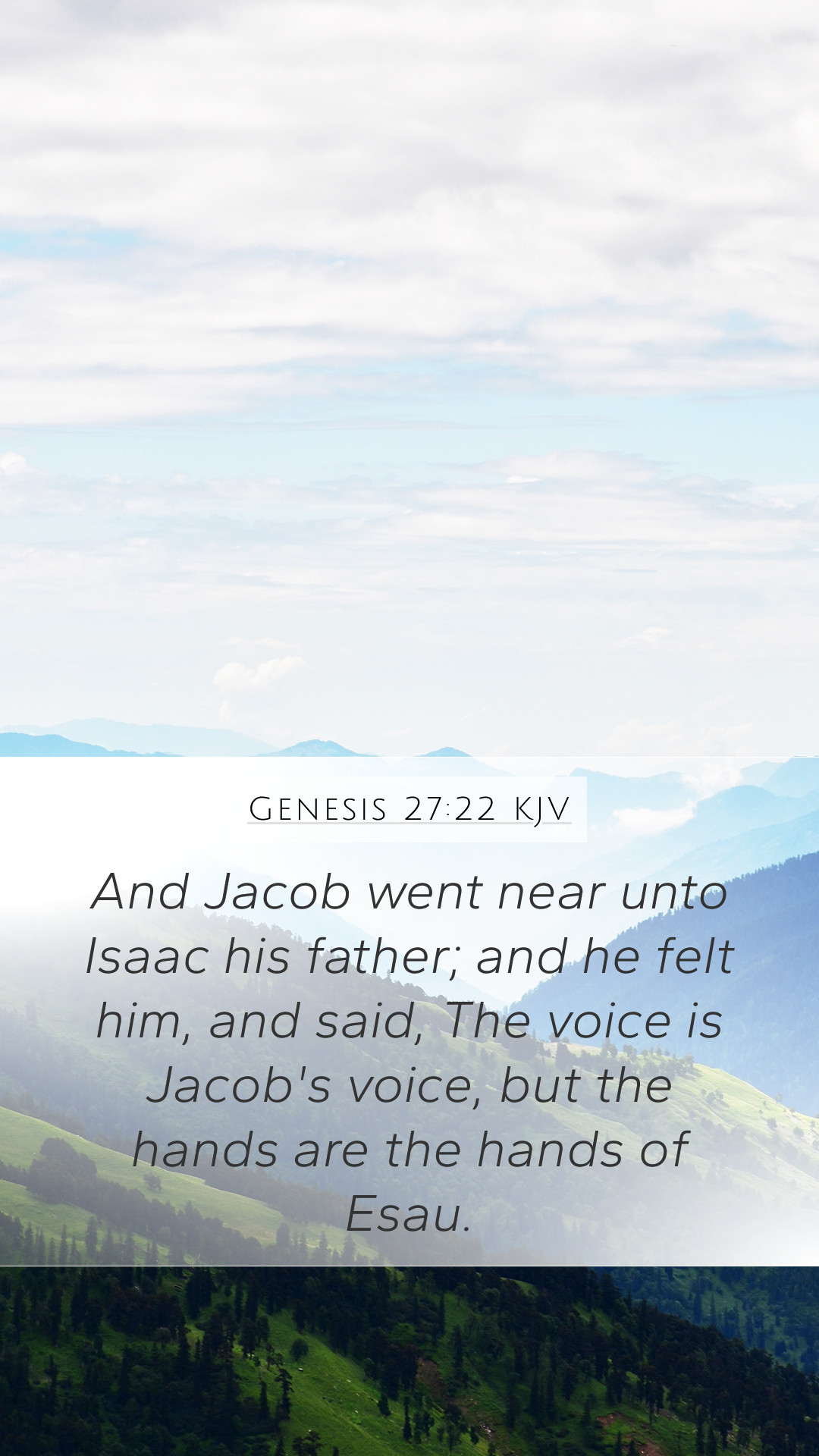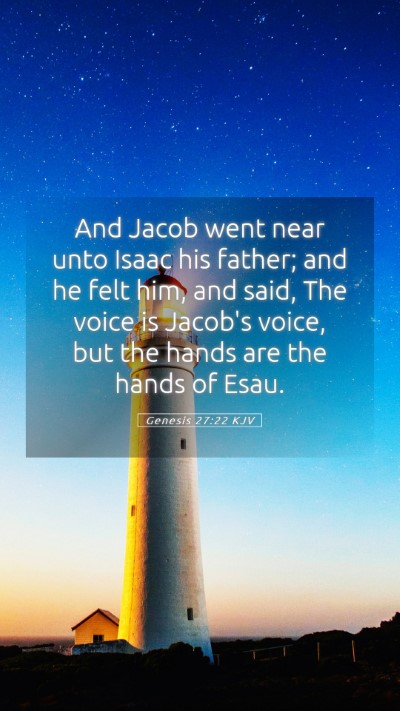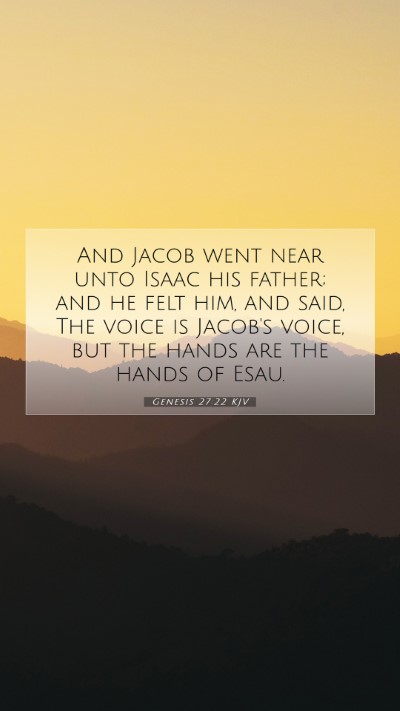Genesis 27:22 - Summary and Commentary
Bible Verse: Genesis 27:22 - "So Jacob went near to Isaac his father, and he felt him and said, 'The voice is Jacob's voice, but the hands are the hands of Esau.'"
Understanding the Verse
This verse is pivotal in the narrative of Jacob and Esau, showcasing the theme of deception and the complexities of familial relationships within the biblical text. Jacob, having received the blessing of Isaac intended for Esau, approached his father disguised as his brother to receive the inheritance. The juxtaposition of Isaac's confusion highlights the struggle for blessings and the implications of deceit.
Contextual Insights
- Matthew Henry: Emphasizes the irony of Isaac's perception. Henry points out that while Isaac's physical senses lead him to assume Esau's presence based on touch, the internal truth represented by the voice stands in contrast. It illustrates the depth of spiritual blindness, where physical sensations overshadow divine truth.
- Albert Barnes: Comments on the implications of Jacob's actions and how deception ultimately leads to division and conflict within the family. Barnes notes that the actions taken by Jacob not only reveal his ambition but also set the stage for ongoing struggles between the brothers.
- Adam Clarke: Focuses on the character dynamics at play, particularly the emotional and theological implications. Clarke discusses Isaac’s inability to discern the truth and relates this to the broader theme of God's sovereignty in choosing individuals for His purposes, regardless of human actions.
Bible Verse Meanings and Interpretations
This verse serves as a profound commentary on the deceptive nature of human relationships and the consequences of seeking blessings through dishonest means. It raises questions about identity, familial loyalty, and God's providential plans despite human shortcomings.
Spiritual Lessons
- The Nature of Deception: The verse highlights the dangers of deceit—not only does Jacob deceive Isaac, but he also sets in motion a series of events that lead to estrangement from Esau.
- Identity and Perception: The struggle between Jacob's voice and Esau's hands symbolizes the conflict between perceived identity and true character. This can lead to an exploration of how God views His people beyond outward appearances.
- Divine Sovereignty: This scenario reinforces the idea that God's chosen plan will prevail despite human actions. Jacob’s deception does not thwart God’s chosen lineage; rather, it becomes a part of His divine tapestry.
Application to Daily Life
When studying this verse, one might reflect on the significance of honesty and integrity within their own relationships. It prompts believers to consider how often they may rely on appearances or manipulations instead of trusting God's timing and provision.
Related Scripture References
- Genesis 25:23 - God's prophecy about the two nations in Rebecca's womb, foreshadowing the conflict.
- Genesis 27:36 - Esau's reaction upon discovering the deception, illustrating the pain of betrayal.
- Genesis 32:22-28 - Jacob’s later transformation and the consequence of his earlier actions.
Conclusion
Genesis 27:22 serves as a rich text for bible study insights and biblical exegesis. Through the commentary provided, one gains deeper bible verse understanding and can apply these insights to both historical contexts and modern scenarios. Engaging with such texts in bible study groups or online bible study platforms can further enhance comprehension and application.
Further Study Suggestions
- Consider how personal ambition can lead to conflict, drawing parallels from Jacob and Esau's story in modern contexts.
- Examine the broader themes of blessing and inheritance in Scripture, especially in light of New Testament teachings.
- Utilize bible study guides and resources to explore the narrative of Jacob and Esau in greater depth, looking into historical and cultural contexts.


